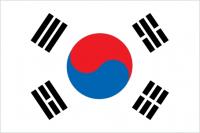Strengthening Climate Resilience through Expansion of Investment in the Water Sector
Asia Water Council
(
Non-governmental organization (NGO)
)
#SDGAction50682
Description
Asia Water Council (AWC) plays a platform for global cooperation in the water sector, representing Asian countries through collaboration between stakeholders such as the government, the international community, and leading companies in the water sector. On the margin of the UN 2023 Water Conference in New York, AWC is organizing the Side Event, and the event aims to raise international awareness for strengthening climate resilience by expanding partnerships among the private sector and investors in the water sector to solve water-related issues in developing countries and overcome the climate crisis. Through policy and technology sharing, AWC seeks to discover new cooperative development projects and further contribute to overcoming the water-related climate crisis and strengthening global climate resilience.
To provide a practical and pragmatic solution that can contribute to the Asian countries, further action together with funding organizations is essential. This is the objective of this Side Event session. As AWC provides a platform to Asian countries for communication and cooperation with other countries and organizations, we can realize the result of collaborative action with the help of funding organizations. AWC will call for the active participation of Asian countries and international organizations to secure sustainable water welfare for Asian countries.
UNDP, OECD, WB, IDB, ADB, GCF, K-water, IWRA
SDGS & Targets
Goal 6
Ensure availability and sustainable management of water and sanitation for all
6.1
By 2030, achieve universal and equitable access to safe and affordable drinking water for all
6.1.1
Proportion of population using safely managed drinking water services
6.2
By 2030, achieve access to adequate and equitable sanitation and hygiene for all and end open defecation, paying special attention to the needs of women and girls and those in vulnerable situations
6.2.1
Proportion of population using (a) safely managed sanitation services and (b) a hand-washing facility with soap and water
6.3
By 2030, improve water quality by reducing pollution, eliminating dumping and minimizing release of hazardous chemicals and materials, halving the proportion of untreated wastewater and substantially increasing recycling and safe reuse globally
6.3.1
Proportion of domestic and industrial wastewater flows safely treated
6.3.2
Proportion of bodies of water with good ambient water quality
6.4
6.4.1
Change in water-use efficiency over time
6.4.2
Level of water stress: freshwater withdrawal as a proportion of available freshwater resources
6.5
By 2030, implement integrated water resources management at all levels, including through transboundary cooperation as appropriate
6.5.1
Degree of integrated water resources management
6.5.2
Proportion of transboundary basin area with an operational arrangement for water cooperation
6.6
6.6.1
Change in the extent of water-related ecosystems over time
6.a
6.a.1
Amount of water- and sanitation-related official development assistance that is part of a government-coordinated spending plan
6.b
Support and strengthen the participation of local communities in improving water and sanitation management
6.b.1
Proportion of local administrative units with established and operational policies and procedures for participation of local communities in water and sanitation management
SDG 14 targets covered
| Name | Description |
|---|
Deliverables & Timeline
AWC Water Project
UNDP-AWC-Ministry of Environment of Korea Cooperative Projet
OECD-AWC-Ministry of Environment of Korea Cooperative Projet
IWRA-K-water-AWC Smart water cities project
Resources mobilized
Partnership Progress
Feedback
Action Network

Timeline
Entity
SDGs
Region
- Asia and Pacific
- Latin America and the Caribbean
- West Asia
Other beneficiaries
Asian Countries
More information
Countries






Contact Information
Yong Hwan, Executive Director of Asia Water Council

